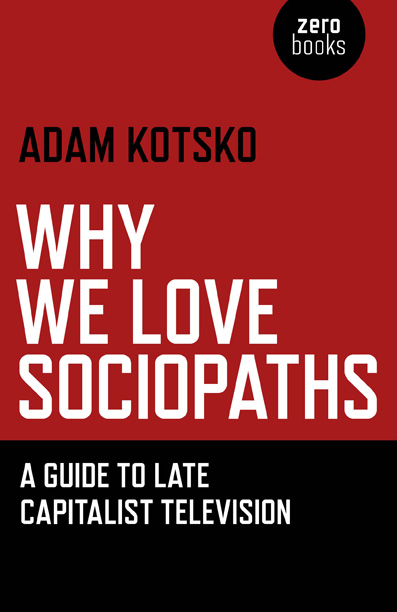Why We Love Sociopaths
Argues that our fascination with cold and ruthless television characters reflects a broken social contract.

Argues that our fascination with cold and ruthless television characters reflects a broken social contract.
Argues that our fascination with cold and ruthless television characters reflects a broken social contract.
Do not use, Media studies, Social
Sociopaths are pervasive in contemporary television, from high-brow drama all the way down to cartoons -- and of course the news as well. From the scheming Eric Cartman of South Park to the seductive imposter Don Draper of Mad Men, cold and ruthless characters captivate us, making us wish that we could be so effective and successful. Yet why should we admire characters who get ahead by being amoral and uncaring? In his follow-up to Awkwardness, Adam Kotsko argues that the popularity of the ruthless sociopath reflects our dissatisfaction with a failed social contract, showing that we believe that the world rewards the evil and uncaring rather than the good. By analyzing characters like the serial killer star of Dexter and the cynical Dr. House, Kotsko shows that the fantasy of the sociopath distracts us from our real problems -- but that we still might benefit from being a little more sociopathic.
Click on the circles below to see more reviews
amusing thoughts on the true meaning of Homer Simpson ~ Lucy Steigerwald, Reason Magazine US
What is it about our society, which makes sociopaths, i.e., the kind of ruthless individuals who make their own rules, so appealing? With his usual acuity, Adam Kotsko gives an analysis of contemporary TV shows (South Park, Mad Men, The Wire, etc.) to make the case that depictions of social disconnection are especially seductive at a time when our own society has become ever more destructive and amoral. Kotsko provokes us in suggesting how we might combine and reshape several features of the television sociopath, so that we might break the hold of the societal norms prevalent in late capitalism.